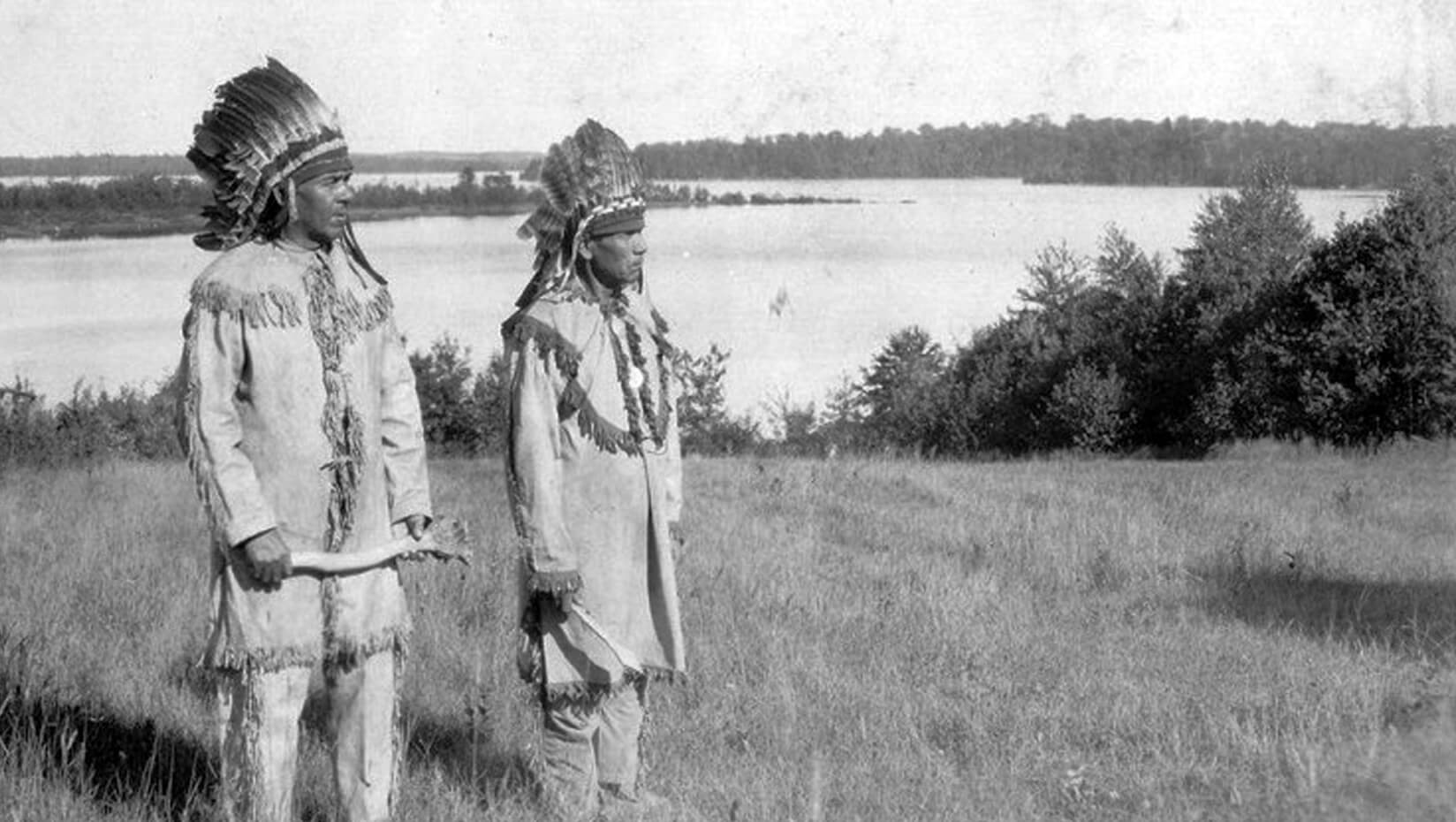
Fellowship will launch Passamaquoddy community engagement project
Micah Pawling, an assistant professor of history and Native American studies at the University of Maine, is one of eight humanities scholars nationwide to be awarded a 2017 Public Engagement Fellowship from the Whiting Foundation.
The eight were selected from more than 80 scholars nominated from over 50 institutions.
The fellowship supports scholars as they engage the public in humanities-focused projects that encourage community building and cultural literacy.
Pawling’s initiative, “The Sabattis Tomah Project: Making History in the Community,” focuses on the significance of Passamaquoddy cultural leader Sabattis Tomah of Peter Dana Point in Indian Township, an isolated community in downeast Maine. Tomah (1873–1954) was an important keeper of ceremonial songs, plant medicine, traditional stories and intimate knowledge of Passamaquoddy homeland.
Weekly conversations took place in the early 1950s between Tomah and ethnographer Nicholas N. Smith. As part of Pawling’s community engagement project beginning in spring 2018, Smith’s ethnographic field journals, transcribed stories and original photographs will be “brought home” to the Passamaquoddy community for the first time in over half a century.
Pawling and Passamaquoddy historian Donald Soctomah will lead a series of intergenerational workshops focused on helping young members of the Passamaquoddy tribe interview their elders to preserve traditions and tribal stories, including memories of Tomah.
Soctomah, who is trained in forestry and a recipient of an honorary degree from the University of Maine at Machias, is an accomplished independent scholar who has authored numerous books on Passamaquoddy history and two children’s books. He works to protect Native culture and lands through resource management, policymaking, teaching, and the promotion and dissemination of Passamaquoddy language and history.
In 2015, Soctomah received the Maine Humanities Council’s Constance H. Carlson Prize in public humanities, the highest humanities honor in Maine, He also has received the Lifetime Cultural Achievement Award from the Association of Tribal Archives, Libraries, and Museums.
Also as part of the project, Pawling will work with the tribe to finish transcribing and annotating Smith’s notes for an exhibit in Indian Township. Smith, a UMaine alumnus noted for his fieldwork in Wabanaki communities and his numerous publications, received an honorary degree from UMaine in 2007.
Pawling, who earned a doctorate from UMaine in 2010, specializes in the ethnohistory of Native North America, Native peoples of eastern Canada and northeastern United States, American history, Canadian history and environmental history.
The selection process for the Public Engagement Fellowship is competitive. A limited number of colleges and universities are invited by the Whiting Foundation to nominate pre-tenure or recently tenured professors in the humanities for the award.
Other projects being pursued by other 2017 fellows include a documentary telling the story of one of the earliest group of Muslims to integrate into the U.S., film and audio exhibits amplifying the voices of communities along Louisiana’s coastal zone and a work of storytelling theater about the history of Latino men in the Vietnam War performed by the veterans, describing how the war shaped their views on immigration, race, patriotism and global politics.
Contact: Margaret Nagle, 207.581.3745
